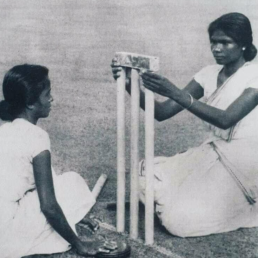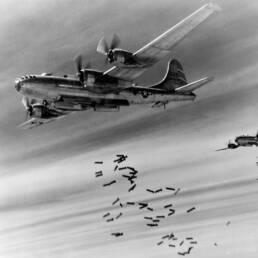Chicago Radio & Gangubai Kathiawadi
- History
- Culture
- Music
This scene from Gangubai Kathiawadi recently caught our fancy – not for the flamboyant Alia Bhatt, but for the public address system in front of her, Chicago Radio. The story of a patriotic visionary who amplified India’s freedom movement through the Chicago Radio loudspeakers.
The story goes back to the 19th century, Sind. After his father’s early demise young Gianchand Motwani bound books, made kites and became a Railway Signaler before starting his own Electric equipment company with a meagre capital of Rs 300/-.
He prospered so well that he soon moved to Karachi and Bombay where he founded a company named Chicago Telephone & Radio in 1919. The man of rare vision, spirit and resolve became one of the first in India to embark on broadcasting.
In early 1929, Gianchand observed Gandhiji tirelessly moving from one platform to another while speaking to a large mass so that his weak voice could be heard by all of them. This made the wise man think.
He wanted to amplify India’s greatest voice against British imperialism; he wanted to amplify the voice of freedom. The answer was Chicago Radio loudspeakers.
Gianchand quickly gained the trust of INC and almost all distinguished leaders of India’s Independence movement addressed the masses through Chicago Radio loudspeakers and public address equipment.
The voice of the leaders of India’s freedom movement became stronger and louder, and most importantly, the masses could clearly hear their beloved leaders without any distortion.
Chicago Radio became a symbol of reliability nationwide. Gandhi, Nehru, Sardar Patel, and Rajendra Prasad – all had addressed the nation using Chicago Radio speakers and had greatly eulogized the quality of the apparatus.
Gandhi Ji stated – “The cheers that punctuated my remarks on some of the most important amendments showed that the listeners were following my exposition with the utmost attention.”
“Your loudspeakers did most excellent work and the arrangements were very much appreciated by all,” said Pandit Nehru, who delivered his iconic “A Tryst with Destiny” on the eve of India’s independence. Chicago Radio was the silent witness.
The company still exists and over time Chicago Radio speakers have been a pivotal companion of India’s numerous milestones. Here the Chicago microphones can be spotted while Lataji sings the iconic ‘Ae mere watan ke logon’.
This advertisement was published in the January 28, 1950 edition of The Times of India (Delhi) where the then Prime Minister of India Jawaharlal Nehru endorsed Chicago Radio. GC Motwani’s dream was a reality by then.
However, it is a tad problematic to find a living Prime Minister of a nation to endorse a commercial product. We can safely blame this on Nehru.
Source: Chicago-radio.net, Motwane.com







